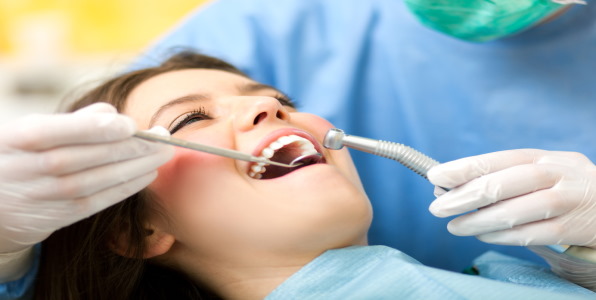One of the common times that patients make an appointment with their dentist is when they return from a holiday or a trip overseas. The usual reason is that during the time they were away they either experienced some kind of trauma, such as an accident that has knocked a tooth out, or they have developed a dental problem, like a loose filling or the onset of excruciating toothache.
Whilst no one can truly legislate against an accident happening on holiday, there are some ways in which the chances of experiencing dental problems whilst abroad can be reduced. One of the best ways to achieve this is to follow the 5-step checklist below when you travel overseas.
Visit Your Dentist Before You Leave
In the week or so preceding your planned travel date, you should have an appointment with your dentist. When there, you want, at the very least, to have a check-up to ensure there are no potential dental health issues that could arise whilst you are away. This is also a great opportunity for them to give your teeth a thorough clean before your trip. You might also ask them if they have any knowledge of the dental services in the location you are travelling to.
Make Contingencies For Dental Treatment When You Are Away
Apart from asking your dentist, you should carry out research on the location you are travelling to with a focus on what dental health services and facilities exist just in case you have a dental emergency and needed use one of them. Your travel insurance and medical insurance should be checked for dental cover, and if neither has it, you might wish to add this for the period that you are going to be overseas.
Ensure You Pack All Your Oral Hygiene Aids
Whilst packing your evening attire and swimwear for the daytime might be at the forefront of your thoughts, you must make sure you pack all your oral hygiene aids too. We recommend you take a spare toothbrush, and as for toothpaste and mouth wash, it is best that you take your own, rather than purchasing them when you arrive. If nothing else this allows you to brush and rinse on a long flight, for example.
Use Bottled Water For Brushing And Rinsing
No matter what your travel plans are and where you are travelling to it is always best that you have at least one bottle of water with you to stay hydrated. As for dental health, the adage about not drinking local water still holds in many countries and that includes the water you use for brushing and rinsing your teeth. Therefore, stock up on bottled water when you arrive and use that instead of water from the bathroom tap.
Do Not Leave Your Toothbrush Etc Out When Not In Use
Whilst you may be perfectly happy for your toothbrush to sit on your bathroom shelf at home, we do not recommend this when overseas. Bacteria of all kinds may be present, and you do not want these entering your mouth or your body for that matter when you brush with a toothbrush that has bacteria present. When not in use, store your dental hygiene aids in a sealed box or bag.

